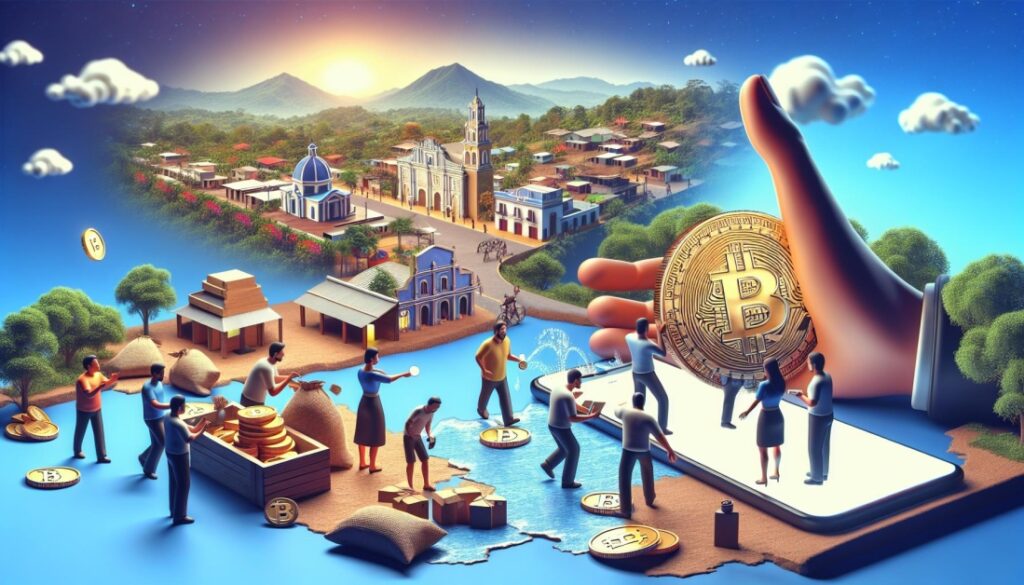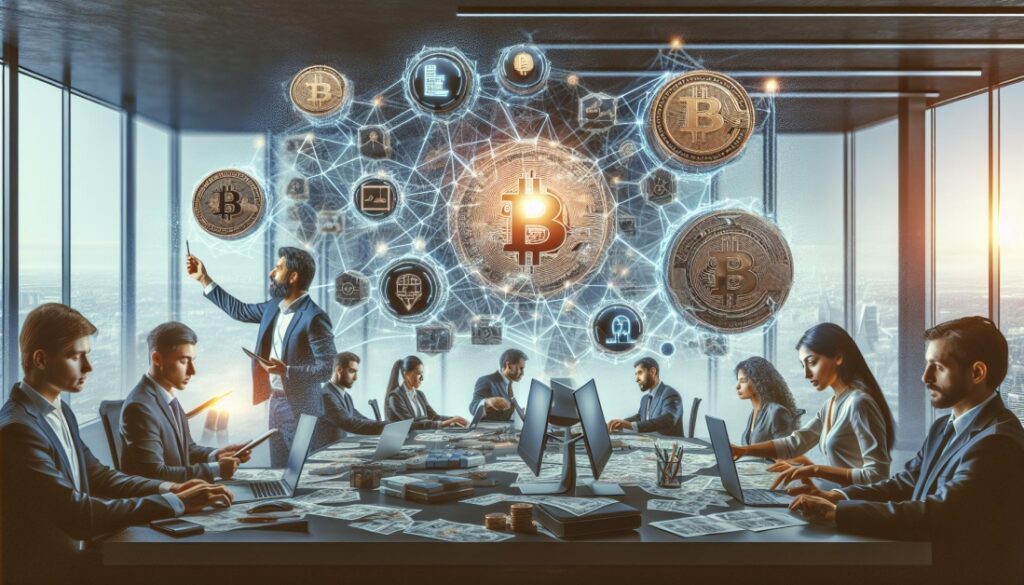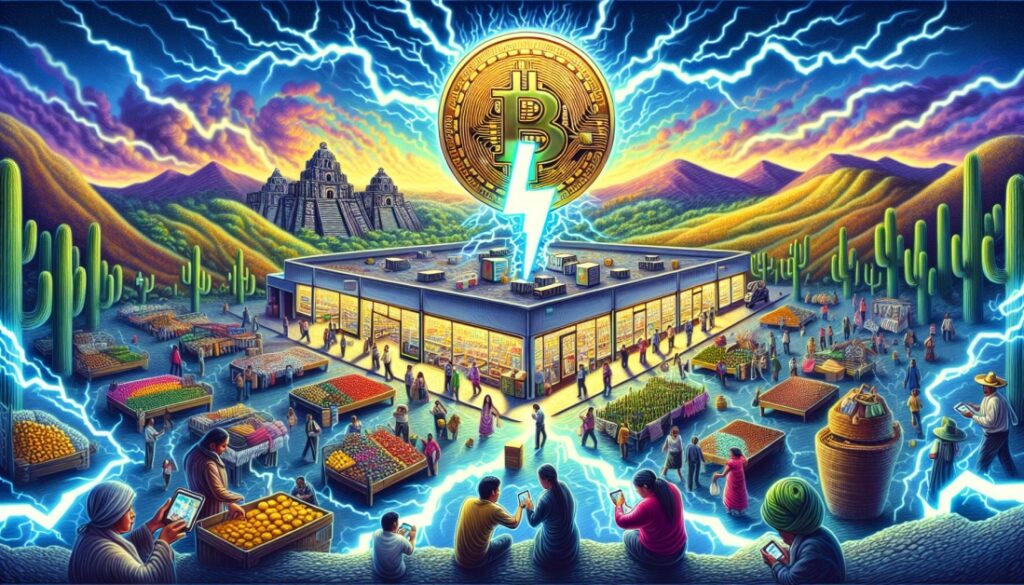Diary From El Salvador: Blitz Is Key to Bitcoin Adoption

Traveling around El Salvador this week, I met two people who are actively working to accelerate Bitcoin adoption and help foreigners start Bitcoin businesses.
The current market price of bitcoin, which is around $29,500, makes owning a bitcoin difficult for most people. Each bitcoin can be broken down into 100 million units called “satoshis,” allowing for smaller exchanges of fiat currency into bitcoin. Bitcoin investors refer to investments in smaller amounts as “stacking sats”. These investments, combined with Layer Two (L2) integrations like the Lightning Network, are seen as a way to increase Bitcoin’s use cases and strengthen its role as a medium of exchange in commerce.
Jonathan Martin, Stanford University graduate, Wharton School student and Georgetown University student, is currently on leave of absence in El Salvador where he is immersing himself in the world of Bitcoin. Its first entry is Here is a link to the article.
Edgar Borja, founder of K1, a Salvadoran company started by an El Salvadoran entrepreneur, was my lunch companion. I wanted to know more about the project he is working on. Borja has developed a Lightning ATM that dramatically reduces the frictional cost of converting fiat to bitcoin compared to ATMs using the Layer One (L1) blockchain.
Shortly after sitting down for lunch, Borja placed a small box with an LCD touch screen on the table. He connected it to the wall, started the device and explained the technology behind it. He brought with him a coin-only version of the machine that resembled a miniature slot machine. He said K1 sells a version of the machine that accepts dollar bills.
Borja dropped 5 cents into the coin slot and tapped the LCD screen. He then instructed me to point my Lightning-enabled wallet’s QR code (called the Wallet Of Satoshi) from my iPhone to the embedded camera. Within seconds I had the equivalent of 5 cents in satoshis. The transaction was free.
The Lightning Network allows for near-instant exchanges of funds and acts as a cash tab that allows users to exchange funds without having to use the slower L1 bitcoin network until settlement. The drastic reduction in transaction fees and increased speed make Bitcoin more fluid and less cumbersome, making it more attractive as a medium of exchange.
K1 offers its Lightning ATMs at a price of $1,200. After that, there are no recurring fees. Once the ATM is purchased, business owners can charge a usage fee. The K1 ATMs are cheaper and can potentially reach a larger market than Athena ATMs, which use the L1 blockchain and charge higher fees.
Borja’s roadmap to mass adoption is one of the clearest I’ve seen. Borja sells machines in El Salvador and 11 other countries.
Before arriving in El Salvador, I spoke to Carlos Miguel Rivas Carrillo (Board Secretary of the El Salvador Bitcoin Association, ASOBITCOIN) to learn more about the process of starting a business experience . The government has actively sought to attract American investors and entrepreneurs and created a business-friendly environment. ASOBITCOIN works closely with the government-approved bitcoin bureau, helping investors to get their projects approved by the relevant authorities.
Rivas is very knowledgeable about local laws and regulations in El Salvador and offered to help me set up my business. Attorneys ranging in cost from $1,500 to $2,000 can help you complete the process in three to four business days. The government requires $300 and the minimum capital investment is $2,000.
He said banks in El Salvador are still not bitcoin-friendly because they integrate with legacy SWIFT systems. Non-bank service providers may issue bank checks that may be deposited into a bank account. The meeting helped me understand how to start a business in El Salvador as a foreigner.
My entrepreneurial experience was primarily based in Austin, TX, where I founded two successful real estate companies. Before attending Wharton School. I traveled to El Salvador to learn about the gaps in the Bitcoin economy. This included the potential of bitcoin applications for real estate or coffee growing. The Multiple Listing Service (MLS), which lists all properties currently on the market and recent trends in the US, is not yet available. Also, the title chain is opaque and the central records may be wrong. Additionally, suing someone who has a lien on a home or property can delay your investment for up to a year.
Rivas is one of many people who have suggested that blockchain can be used to solve some problems and reduce inefficiencies within the economy. These inefficiencies could open up great opportunities for risk-taking entrepreneurs.
I always try to pay with Bitcoin before using my Coinbase wallet or my Satoshi wallet. I was in a supermarket near me and tried to pay for groceries with bitcoin. She pressed keys on an old computer that appeared to be at least five years old. The bitcoin point of sale component of the system was not working. I had to pay cash.
I used my Satoshi wallet a few times while walking through Presidente Plaza, a mall that is not yet fully built. Both the coffee shop and comic store I visited did not have working Bitcoin PoS systems. Both times I paid by credit card and both vendors used BAC Credomatic handheld scanners. They are common in San Salvador and you can pay by credit or debit. I wasn’t sure if the vendors had Bitcoin PoS machines.
To make bitcoin more accessible as a medium of exchange, these devices will likely need to include Lightning integration to make bitcoin usage more intuitive for vendors. Both sides of the commercial transaction face barriers to mass adoption.
Having spent more than a month in El Salvador, it is clear that the infrastructure outlined in President Bukele’s Bitcoin vision has been implemented. Some people fear bitcoin price volatility but ignore the volatility that fiat inflation brings. I estimate that it will be several years before people trust bitcoin as much as they do dollars.
It is certain that people like Borja, Rivas and others will be crucial in helping Bukele achieve his goal.





